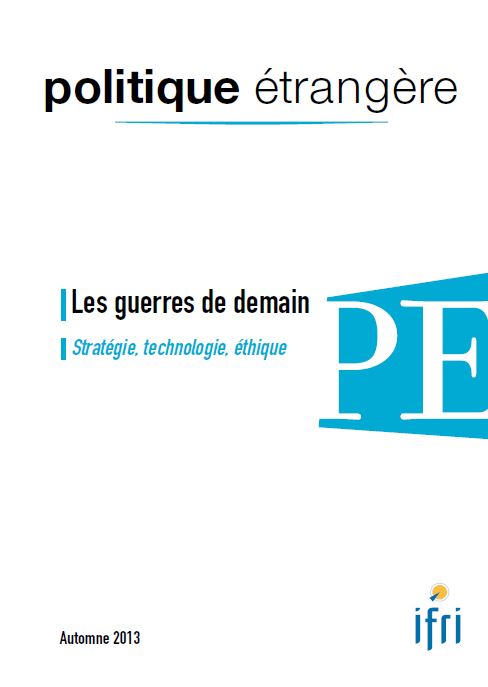
Questioning Algeria's Non-Interventionism
Given its colonial history, Algeria does not want foreign powers involving themselves in internal affairs.

Algeria, a New Regional Force? / Armenia-Turkey: the Wasted Centennial
Algeria has appeared strangely calm despite an explosive regional environment. Nevertheless, a number of storm clouds lurk on the horizon: the fall of oil prices in a highly resource-driven economy; a decrease in revenues that have stood to maintain social peace; paralysis of the political system; instability in the Maghreb (Tunisia, Libya…) and the Sahel (Mali…). Algiers is faced with many difficult choices. How should the succession of president Bouteflika be settled in a society that is increasingly depoliticized but that nevertheless contests the regime’s opacity? Is it possible to finally diversify an economy that is still structured on rent from the country’s resources? How can the country protect itself from external disorder? As the major military power in the region, Algeria has followed a path of non-engagement in external affairs for decades. This is no longer viable. At both the internal and external level, the regime will have to demonstrate flexibility in dealing with new, potentially dangerous situations.
This issue of Politique étrangère also deals with two major themes of 2015: the 100 year anniversary of the Armenian genocide, which was a wasted opportunity to link Ankara and Erevan, but has proven to be revealing Turkish contradictions, among other things; the shifting of international migrations, in particular those involving Europe and the Mediterranean region.
A range of other topics are also explored in this issue that strike at the heart of many of the most pressing international debates today: The negotiation of a possible Transtlantic Trade and Investment Partnership (TTIP), Chinese visions of the “New Silk Roads”, the state of Somalia, piracy in the Gulf of Guinea, and relations between Muslims states and Islam in France.

Algeria’s Permanent State of Economic Crisis (1999-2015)
When President Bouteflika came to power in 1999, he sought to liberalise the country’s economy. But these reforms were reversed after only a few years.

The Evolution and Limits of the Algiers-Moscow Relationship
During the Cold War, Algeria was one of the Soviet Union’s favored partners. Ties between the two countries deteriorated during the 1990s before going through a renewal around fifteen years ago.

Algeria and the Crisis in Mali
The multifaceted crisis in Mali, which has effectively led to state collapse and split the country in two, has drawn international attention to Algeria’s role in the stability of the Sahel. One might expect Algeria, as the region’s preeminent military power, and one that has sought to position itself as a leader in counter-terrorism, to lead the international response to the growing chaos along its volatile southern border.
Algeria: Cosmetic Change or Actual Reform?
Algeria has emerged as something of an “exception” across the Middle East and North Africa (MENA) region, and while the recent elections have been marred by widespread allegations of fraud, the results have effectively consolidated the regime’s grip on power thus ensuring its complete monopoly over the country’s reform process.
U.S.-Algerian Security Cooperation and Regional Counterterrorism
This paper explores the recent evolution of security cooperation between the United States and Algeria, which have forged a strong partnership on counterterrorism despite lingering mutual distrust.
Tuaregs' Relations to States: The Case of Algeria and Libya
The industrial revolution underwent by Europe in the 18th century has triggered the need for the major colonial powers to find new markets for their manufactured products. It is in this colonial competitive framework that European explorers delivered information about the different access roads, as well as the Tuareg tribes, notably the Kel Ajjer and the Kel Ahaggar.
The United States' Economic Strategy and Presence in the Maghreb
Before the 9/11 events, US-Maghreb relations were growing stronger, especially after the United States had long left the floor to the Maghreb’s “natural” European partner. Therefore, the American action in this region was in line with a mechanism previously set off by Clinton Administration member, Stuart Eizenstat, which aimed at reducing intra-regional obstacles and stimulating American investments towards an area where Americans were little-represented. Hence Washington seemed more involved in promoting the emergence of a strong, world-economy-integrated Maghrebi market.
Support independent French research
Ifri, a foundation recognized as being of public utility, relies largely on private donors – companies and individuals – to guarantee its sustainability and intellectual independence. Through their funding, donors help maintain the Institute's position among the world's leading think tanks. By benefiting from an internationally recognized network and expertise, donors refine their understanding of geopolitical risk and its consequences on global politics and the economy. In 2024, Ifri will support more than 70 French and foreign companies and organizations.






